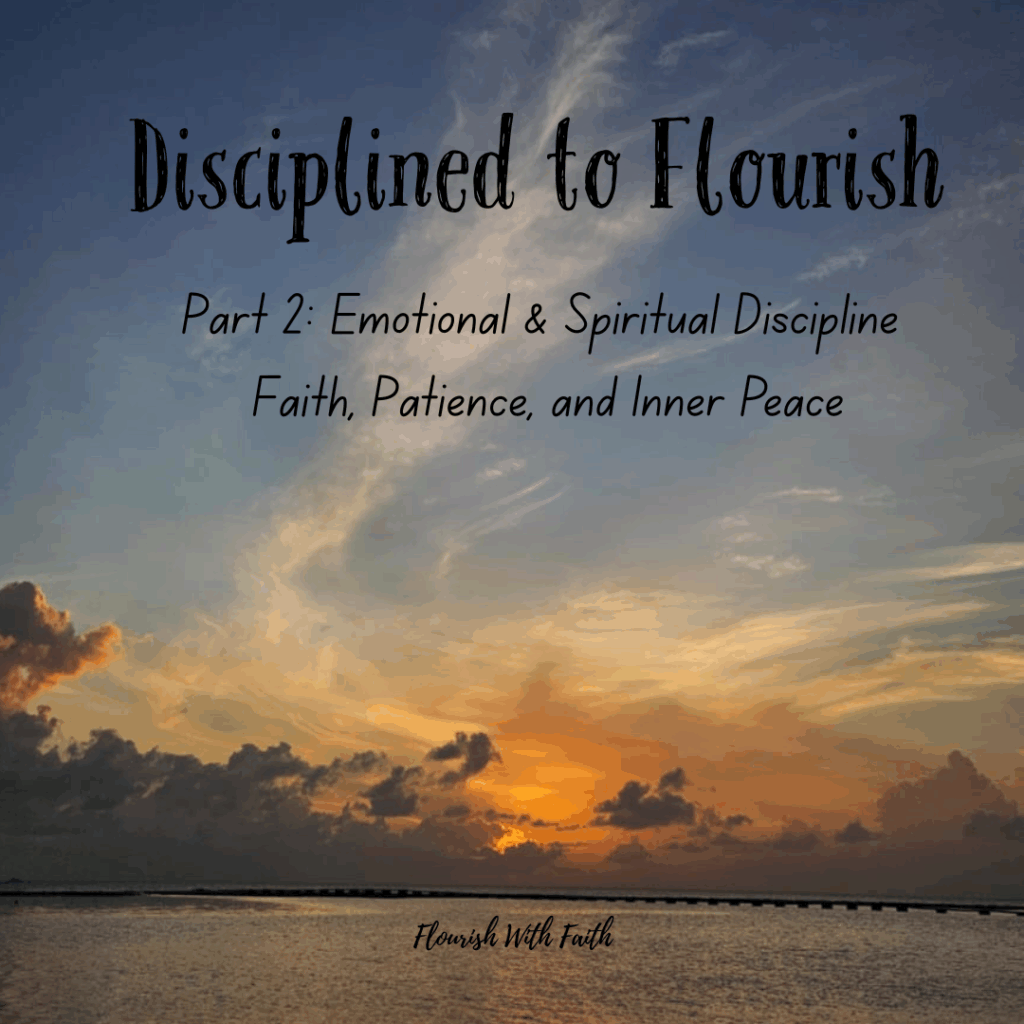Part 2: Emotional & Spiritual Discipline – Faith, Patience, and Inner Peace

In a world that constantly demands quick answers and instant healing, emotional and spiritual discipline invites us to slow down, sit with our feelings, and reconnect with something greater than ourselves. It’s not about having all the answers — it’s about building the strength to face our reality with grace, patience, and trust in Allah.
This part of my journey wasn’t about getting things under control on the outside. It was about getting stronger on the inside.
Spiritual Discipline: Where My Healing Began
In my hardest moments, I didn’t have a plan — I only had prayers.
I used to wake up with a tight chest, heavy with guilt over my past decisions, the debt I was buried in, and the fear of what the future might hold. I felt the shame of a broken marriage, the pressure of being a single mother, and the fear of becoming a burden to those around me.
But I turned to Allah — again and again.
I made dua not for a perfect life, but for the strength to face the reality I was in.
I begged Allah to forgive my mistakes.
I asked Him to help me find a way to repay my debts, to bless me with good health, and to protect me and my son from becoming a burden to anyone.
I cried for someone who would love me for who I am and accept me with all my imperfections.
Those prayers became my anchor. And that spiritual discipline — showing up consistently in front of Allah, even when I was broken — helped me become emotionally stronger than I’ve ever been.
Performing my five daily prayers on time, and especially waking up for Tahajjud in the quiet of the night, made a world of difference. Tahajjud became a sacred space — not just to ask, but to weep, to release, and to trust. That private moment with Allah, while the world was still asleep, helped me realign my heart, silence my fears, and build a deep emotional resilience that no external motivation could offer.
It didn’t happen overnight. But over time, I began to notice a shift: I wasn’t drowning in fear anymore. I was learning to trust — to believe that Allah hadn’t abandoned me, that He was preparing something better, that my story was still unfolding.
Emotional Discipline – Honoring Your Feelings, Not Hiding Them
Discipline of the heart doesn’t mean suppressing your emotions. It means allowing yourself to feel fully, but responding wisely.
I used to react from a place of anxiety or frustration — bottling things up, then exploding, or withdrawing completely. But through consistent journaling, mindfulness, and slowing down my reactions, I began to respond with more awareness and less regret.
Emotional discipline looks like:
- Choosing not to react immediately when someone upsets you.
- Sitting with uncomfortable feelings instead of numbing them.
- Knowing your triggers and creating space before you respond.
- Choosing peace over drama, clarity over chaos.
Emotional discipline isn’t about being “tough.”
It’s about creating enough space within yourself to pause, breathe, reflect, and choose peace.
A Gentle Invitation to You
You don’t need to wait until you “have it together” to start. Start from where you are — in the middle of the storm, the sadness, the guilt, the uncertainty.
Spiritual discipline can look like:
- Prioritizing your daily prayers, even on busy or tired days.
- Reading Quran consistently, even a few verses.
- Making dua and practicing Tawakkul — trusting Allah’s timing.
- Being patient when things don’t go your way.
Spiritual discipline isn’t about perfection.
It’s about devotion — even when you’re still healing.
Final Reflection
If you’re in a season where your heart feels heavy, let this be your reminder: you’re allowed to feel, to cry, to rest, and to rebuild.
Let your emotional growth be rooted in your spiritual strength.
Let your healing begin with the One who knows your heart better than you do.
Because when your faith becomes your foundation, your emotions no longer control you — they guide you back to yourself and back to Allah.
Lots of Love and Dua
Sofwa